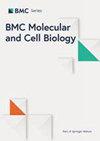Development of an in vitro human alveolar epithelial air-liquid interface model using a small molecule inhibitor cocktail
IF 2.7
3区 生物学
Q4 CELL BIOLOGY
引用次数: 0
Abstract
The alveolar epithelium is exposed to numerous stimuli, such as chemicals, viruses, and bacteria that cause a variety of pulmonary diseases through inhalation. Alveolar epithelial cells (AECs) cultured in vitro are a valuable tool for studying the impacts of these stimuli and developing therapies for associated diseases. However, maintaining the proliferative capacity of AECs in vitro is challenging. In this study, we used a cocktail of three small molecule inhibitors to cultivate AECs: Y-27632, A-83-01, and CHIR99021 (YAC). These inhibitors reportedly maintain the proliferative capacity of several types of stem/progenitor cells. Primary human AECs cultured in medium containing YAC proliferated for more than 50 days (over nine passages) under submerged conditions. YAC-treated AECs were subsequently cultured at the air-liquid interface (ALI) to promote differentiation. YAC-treated AECs on ALI day 7 formed a monolayer of epithelial tissue with strong expression of the surfactant protein-encoding genes SFTPA1, SFTPB, SFTPC, and SFTPD, which are markers for type II AECs (AECIIs). Immunohistochemical analysis revealed that paraffin sections of YAC-treated AECs on ALI day 7 were mainly composed of cells expressing surfactant protein B and prosurfactant protein C. Our results indicate that YAC-containing medium could be useful for expansion of AECIIs, which are recognized as local stem/progenitor cells, in the alveoli.利用小分子鸡尾酒抑制剂开发体外人体肺泡上皮气液界面模型
肺泡上皮会受到许多刺激,如化学物质、病毒和细菌,这些物质会通过吸入导致各种肺部疾病。体外培养的肺泡上皮细胞(AECs)是研究这些刺激的影响和开发相关疾病疗法的重要工具。然而,在体外维持肺泡上皮细胞的增殖能力具有挑战性。在这项研究中,我们使用了由三种小分子抑制剂组成的鸡尾酒来培养 AECs:Y-27632、A-83-01 和 CHIR99021(YAC)。据报道,这些抑制剂能维持几种干细胞/祖细胞的增殖能力。在浸没条件下,用含有YAC的培养基培养的原代人类AEC细胞增殖了50多天(超过9个传代)。经 YAC 处理的 AEC 随后在气液界面(ALI)上培养,以促进分化。经 YAC 处理的 AECs 在 ALI 第 7 天形成了单层上皮组织,表面活性蛋白编码基因 SFTPA1、SFTPB、SFTPC 和 SFTPD 表达旺盛,这些基因是 II 型 AECs(AECIIs)的标记。免疫组化分析表明,在 ALI 第 7 天,经 YAC 处理的 AECs 石蜡切片主要由表达表面活性蛋白 B 和前表面活性蛋白 C 的细胞组成。
本文章由计算机程序翻译,如有差异,请以英文原文为准。
求助全文
约1分钟内获得全文
求助全文
来源期刊

BMC Molecular and Cell Biology
Biochemistry, Genetics and Molecular Biology-Cell Biology
CiteScore
5.50
自引率
0.00%
发文量
46
审稿时长
27 weeks
 求助内容:
求助内容: 应助结果提醒方式:
应助结果提醒方式:


